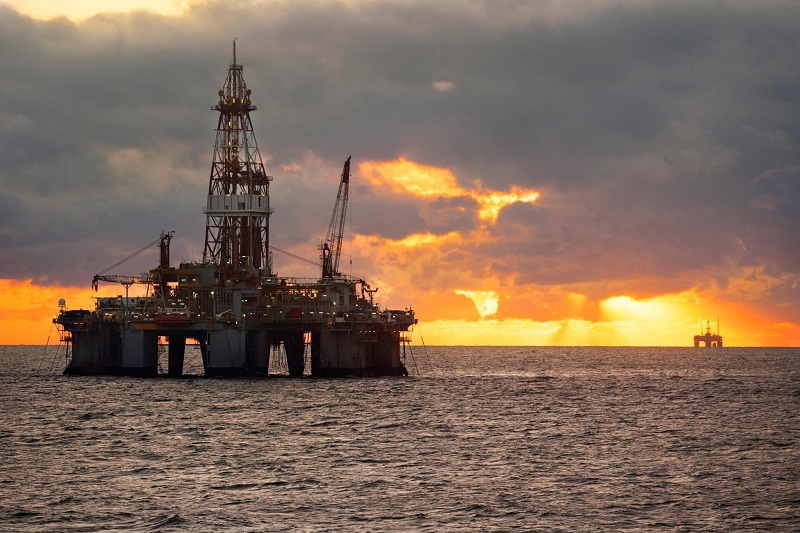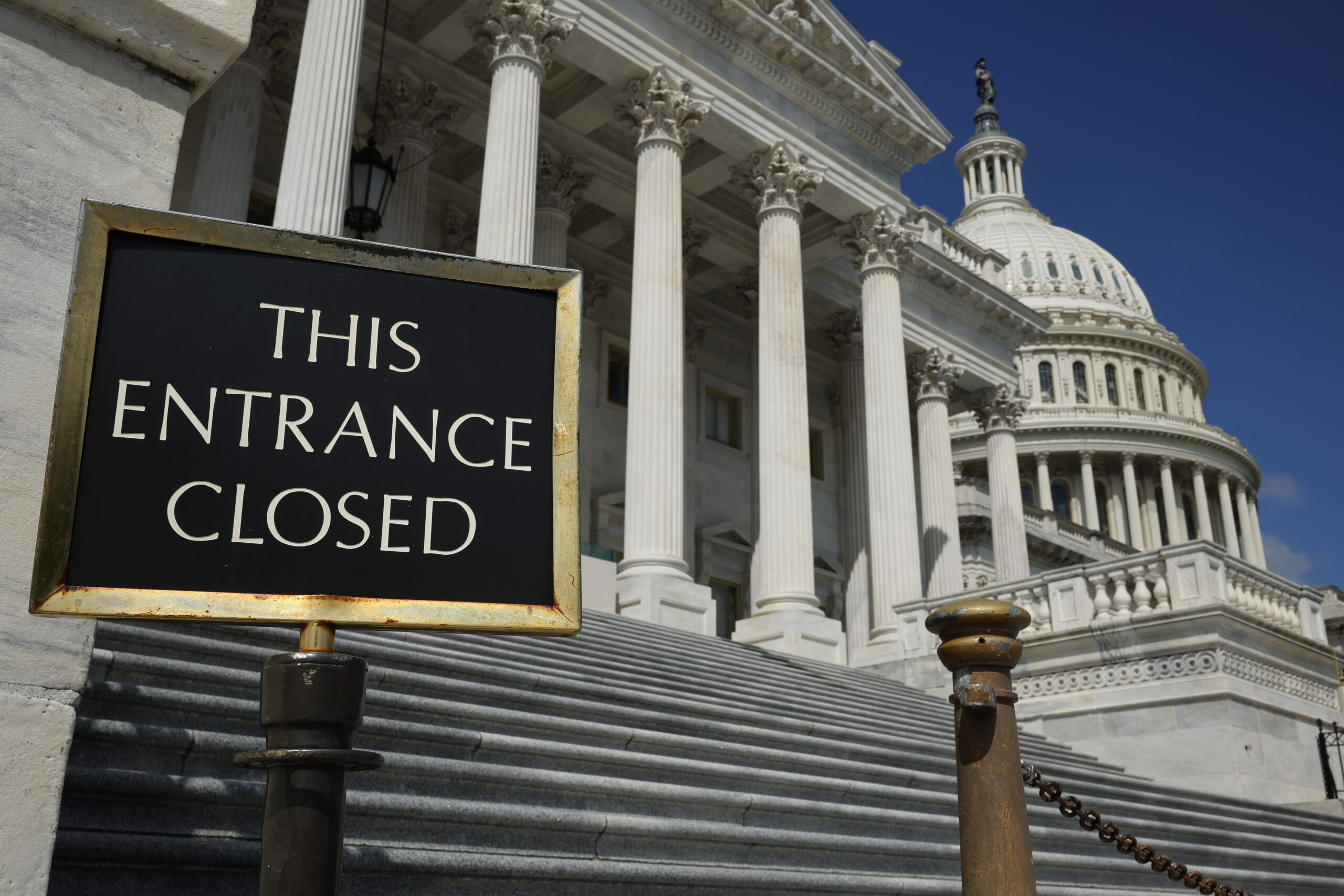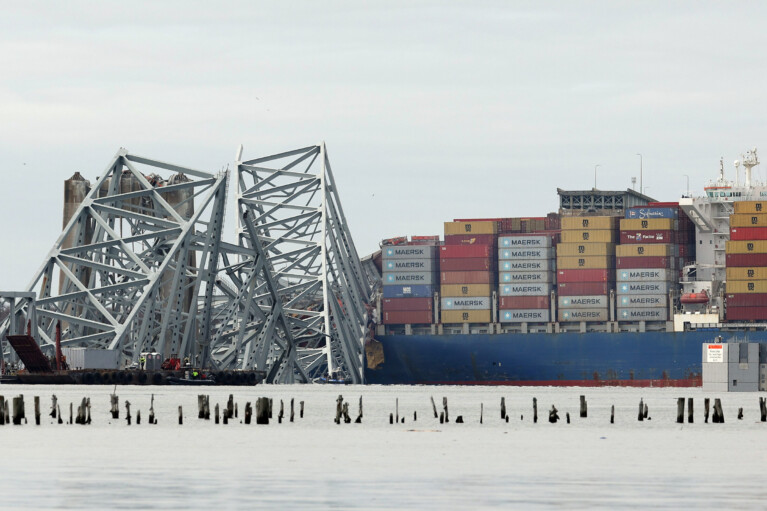Md. Members Divide Along Party Lines as House Votes to Ban Offshore Drilling

U.S. House lawmakers approved bipartisan legislation Wednesday that would block new offshore drilling off the majority of the U.S. coast – despite pushback from many Republicans.
The legislation would put in place far-reaching new protections, blocking drilling off most of the Atlantic and Pacific coasts. Lawmakers are scheduled to vote Thursday on a similar ban for drilling in the Arctic Ocean.
The efforts take aim at the Trump administration’s push to open up vast new areas of the U.S. coasts to oil and gas exploration.
But the sweeping proposals face an uncertain future. It’s unlikely that Republican leadership in the Senate will act on the legislation and the White House has threatened to veto the bills.
Congress voted 238-189 to pass H.R. 1941, the Coastal and Marine Economies Act, which blocks the Interior Department from seeking any new drilling off the Pacific or Atlantic coasts. Twelve Republicans voted for the bill; five Democrats voted against it.
The Maryland delegation voted along partisan lines, with the seven House Democrats supporting the legislation, and the lone Republican, Rep. Andrew P. Harris, voting against it.
The House also voted 248-180 in favor of H.R. 205, a proposal from Rep. Francis Rooney (R-Fla.) that would block oil and gas leasing in the Gulf of Mexico off the coast of Florida. There is already a moratorium on oil and gas drilling in the eastern Gulf of Mexico that expires in June 2022. This bill would permanently extend it.
Twenty-two Republicans voted in favor of Rooney’s bill; five Democrats voted against it.
Without any new protections in place, coastal states including Maryland could see a number of new lease sales in the coming years.
Lawmakers on both sides of the aisle have pushed for measures that would limit drilling along their own state’s shorelines.
“Reckless decisions by the Trump Administration and Congressional Republicans to expand offshore drilling along our coastlines pose serious risks to local economies, to public health and to marine ecosystems and wildlife,” said Rep. John P. Sarbanes (D-Md.). “In the midst of a global climate crisis, we cannot afford to bow down to dirty polluters.”
House Majority Leader Steny H. Hoyer (D-Md.)
pointed to the 2010 Deepwater Horizon disaster in the Gulf of Mexico as reason to support a ban on offshore drilling, saying, “We’ve seen what happens when something goes wrong.”
“An oil spill making its way into the Chesapeake Bay and destroying our world-class fisheries are harming the beautiful beaches of Maryland’s Chesapeake and Atlantic shores would frankly be devastating,” he said.
GOP opposition
The Trump administration has pushed for massive new oil and gas exploration in ocean waters, as part of the administration’s “all of the above” energy policy. The Interior Department regularly drafts new five-year plans for oil and gas leasing.
The Trump administration’s proposal for 2019-2024 would open drilling up and down the West Coast and Atlantic Seaboard, including some areas that have been closed for decades. Interior Secretary David Bernhardt put a pause on those plans while the administration litigates whether some areas should be open to drilling. But in the meantime, opponents of drilling want to block future development.
President Obama banned drilling in canyons of the Atlantic Ocean and vast parts of the Arctic Ocean. But President Trump signed an executive order in 2017 to throw out those drilling bans. Environmental groups have challenged the Trump drilling plans, and they are still tied up in court.
The Coastal and Marine Economies Protection Act would permanently remove from consideration acreage for offshore leasing on both the Atlantic and Pacific outer continental shelf. Lawmakers accepted an amendment from Rep. Andy Levin (D-Mich.) and Rep. Don Beyer (D-Va.) that also puts a moratorium on oil, gas and methane seismic activities.
“At a time when global temperatures are steadily rising and the habitats of imperiled species are increasingly unstable, we have every reason to ensure the health and security of our coastlines,” Beyer said in a statement. “Congress took a major step today to preserve those coastlines and push back against yet another handout from the Trump administration to the fossil fuel industry.”
Republicans warned that the legislation would clamp down too hard on energy development.
Rep. Ben Cline (R-Va.) said that developing oil and gas resources off the Virginia coast could “bring thousands of jobs to Virginia and significantly boost its economy.”
Cline said it’s “fine” if other states don’t want drilling revenue. “But the federal government should not be in the business of halting Virginia – and in turn America’s – economic growth,” he said. “Failing to give states like mine the ability to explore the resources off our coast would be a grave disservice to my constituents, our Commonwealth and our nation.”
Veto threat
The Trump administration issued a veto threat, saying the legislation would put too many restrictions on the country’s ability to explore for the best oil and gas resources. The White House said the legislation would “tie the hands of future administrations and reduce their ability to enhance energy security.”
Environmentalists applauded the legislation, which they say will help protect oceans, marine life and coastal communities from the pollution that comes with offshore drilling and development.
“Legislating to prevent offshore drilling is important, especially now, given that the Trump administration has proposed the most extreme offshore drilling we have ever seen,” said Alexandra Adams of the Natural Resources Defense Council. “Members of Congress acting swiftly and quickly now is really critical.”
House lawmakers have also included amendments in their annual Interior Department spending bill that would block offshore drilling along most U.S. shores in 2020.
Oil and gas drilling has gained some attention among Democratic presidential hopefuls, with candidates speaking out against offshore drilling on the campaign trail and at a recent CNN town hall about climate change. Democratic presidential candidate Beto O’Rourke released a statement this week backing the Coastal and Marine Economies Act.
“Offshore drilling threatens the local wildlife and water of communities in South Carolina and across the country while also undermining economic opportunity,” O’Rourke said in a news release. He has made five campaign trips to South Carolina, an early voting state.
The lead sponsor of the bill to ban offshore drilling, Rep. Joe Cunningham (D-S.C.), leveraged his opposition to offshore drilling in his 2018 campaign, when he flipped a seat that had long been in Republican control. Cunningham’s district includes Charleston, S.C., and stretches along the coastline.
Robin Bravender contributed to this report.




 Creative Commons Attribution
Creative Commons Attribution